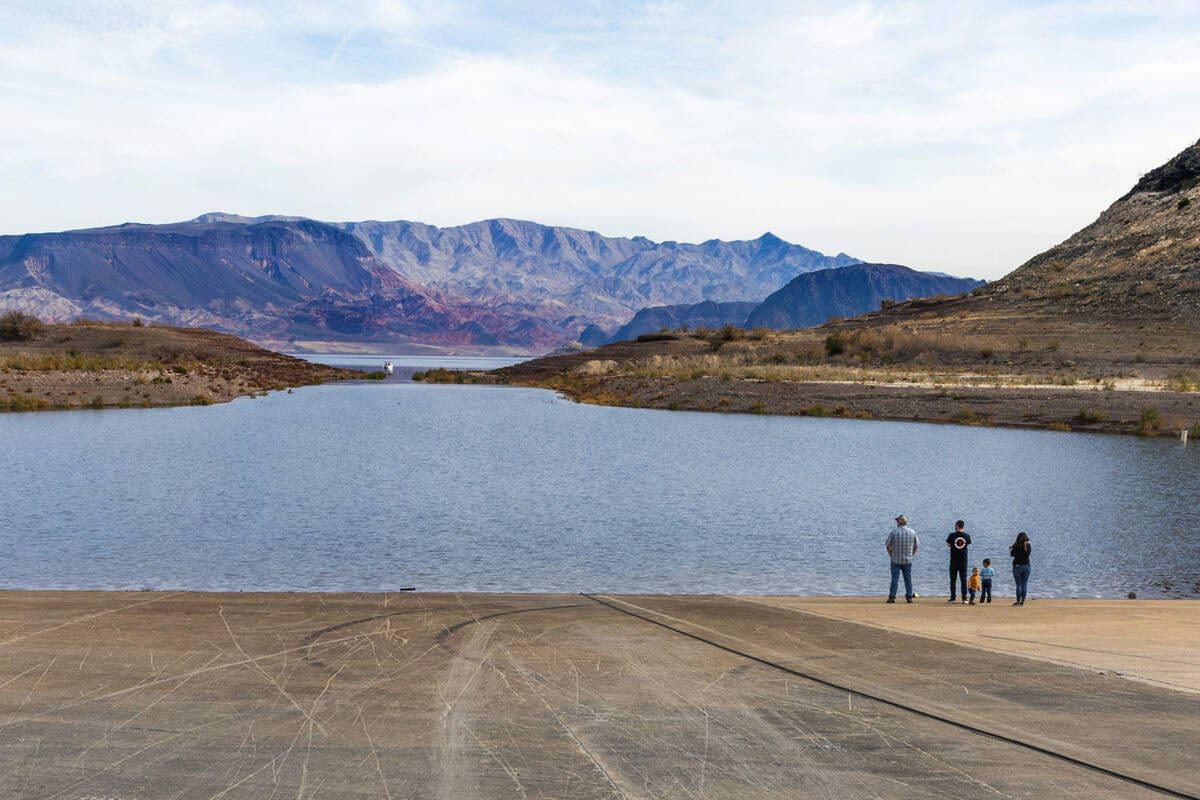Fixing drought requires more federal funding, Nevada lawmakers say
Nevada lawmakers signed onto a letter with more than 30 other members of Congress on Monday, calling for more federal funds to help address drought in the West, which is only expected to intensify.
A coalition that included Democratic Sens. Jacky Rosen and Catherine Cortez Masto, as well as Democratic Reps. Dina Titus and Susie Lee, praised the relief that the Inflation Reduction Act has brought in making money available for climate-smart agriculture and forest management. But the $4 billion dedicated to drought mitigation in the Colorado River Basin will expire in 2026, and legislators would like to see more money invested.
It was a wet winter — but not wet enough to provide enough relief to Western states experiencing a drought that scientists say has spanned more than two decades.
“We ask the Department to bring all resources to bear in helping address long-term drought and aridification in the Western United States,” the legislators wrote to U.S. Agriculture Secretary Tom Vilsack, adding that climate change is exacerbating water issues.
Some of the money was used to pay farmers for water conservation following Nevada, California and Arizona’s acceptance of cuts in their collective Colorado River water up to 3 million acre-feet, or about 977 billion gallons, by the end of 2026.
The letter asks the Biden administration to consider investing in smaller-scale solutions on farms and bigger, watershed-wide measures in upstream states.
It’s not certain what that might look like or how that funding would be distributed among the basin’s states.
This is also a plea made during an election year, with some left-leaning lawmakers worried about how another Trump presidency could shake up leadership in agencies that regulate water and farming in the West.
“Reliable and sustainable water availability is absolutely critical to any agricultural commodity production in the American West,” lawmakers wrote. “Swiftly deploying funds to producers and watersheds in our States and Districts is crucial to help them respond to more frequent and severe droughts.”
Contact Alan Halaly at ahalaly@reviewjournal.com. Follow @AlanHalaly on X.






















